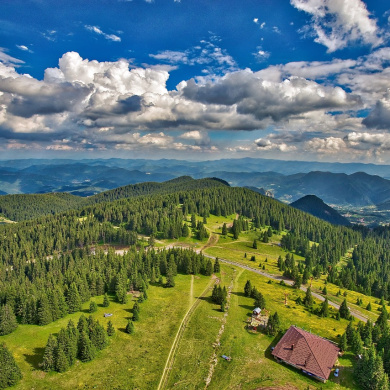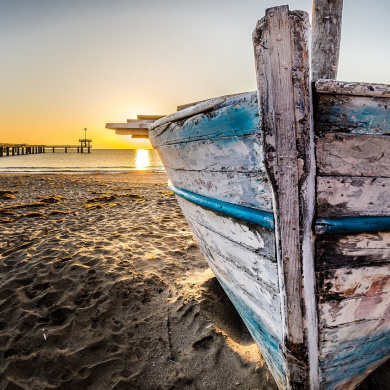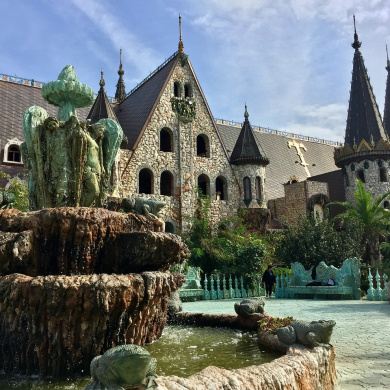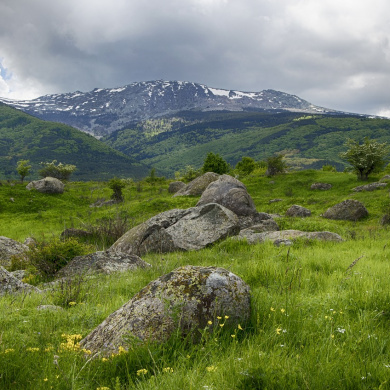Why travel to
- Rich Culture: Bulgaria is a country with a rich culture and history, with many interesting places to explore. From the ancient ruins of Thracian tombs to the stunning architecture of the Bulgarian Orthodox churches, there is something for everyone to enjoy.
- Natural Beauty: Bulgaria is home to some of the most beautiful landscapes in Europe. From the Black Sea coast to the majestic mountains of the Balkan range, there is something to marvel at wherever you go.
- Affordable Prices: Bulgaria is one of the most affordable countries in Europe, making it a great destination for budget travellers. From food and accommodation to transportation and activities, you can find good value for your money here.
- Friendly People: Bulgarians are known for their hospitality and friendliness. Whether you’re in the capital city of Sofia or the smaller towns in the countryside, you’ll find people who are eager to help you out and show you around.
- Delicious Cuisine: Bulgaria is home to a variety of delicious dishes. From traditional Bulgarian dishes like Shopska salad and banitsa to grilled meats and fresh seafood, you’ll find something to satisfy your taste buds.
Cost of living
The cost of living in Bulgaria depends on the city and lifestyle of the individual. Generally, the cost of living in Bulgaria is considered to be very affordable compared to other European countries. Groceries, utilities, transportation, and entertainment are all relatively inexpensive. Housing costs can vary depending on the city and neighborhood.
Safety
Yes, it is generally safe to travel to Bulgaria. The country has a low crime rate, and the US Department of State has not issued any travel warnings for Bulgaria. However, visitors should exercise caution, as with any international destination, and take the usual safety precautions.
Places to visit
- Rila Monastery: Located in the Rila Mountains, this UNESCO World Heritage Site is the largest and most famous Eastern Orthodox monastery in Bulgaria. Built-in the 10th century, the monastery is home to stunning architecture and frescoes, as well as a museum and library.
- Plovdiv: Bulgaria's second-largest city, Plovdiv is a great place to explore the country's ancient history. The city has a number of archaeological sites, including the Roman amphitheatre, which dates back to the 2nd century AD.
- Sofia: Bulgaria's capital city is a vibrant and modern destination, with plenty of sights to see. Highlights include the Alexander Nevsky Cathedral, the National Theatre, and the Boyana Church, which is a UNESCO World Heritage Site.
- Veliko Tarnovo: Located on the Yantra River, this city is often referred to as the "City of the Tsars" because it was the capital of the Second Bulgarian Empire. Here you can explore the ruins of the Tsarevets Fortress, take a cable car ride to the top of the hill, and visit the old town.
- Nessebar: This picturesque seaside town is a popular tourist destination, with a mix of ancient ruins, churches, and modern amenities. Don't miss the 13th-century Church of St. John the Baptist and the Archaeological Museum.
- Balchik: Located on the Black Sea Coast, this is a great place to relax and enjoy the beach. The town also has a number of archaeological sites, including the ruins of a 13th-century fortress and a Thracian tomb.
- Vitosha Nature Park: Located just outside of Sofia, this nature park is a great place to explore the outdoors. Here you can hike and mountain bike along the trails, swim in the lakes, and explore the caves.
Food to try
- Banitsa: a traditional Bulgarian pastry made from layers of filo dough filled with a mixture of whisked eggs and cheese.
- Shopska Salad: a traditional Bulgarian salad made with tomatoes, cucumbers, onions, peppers, and feta cheese, all topped with a generous helping of parsley and a drizzle of olive oil.
- Kebapche: a traditional Bulgarian dish of minced meat, usually pork or lamb, grilled on a skewer and served with a side of fries.
- Musaka: a traditional Bulgarian dish of ground meat and potatoes, usually topped with a layer of cheese and baked in the oven.
- Tarator: a traditional Bulgarian cold soup made with yogurt, cucumbers, dill, and garlic.
- Sarmi: a traditional Bulgarian dish of stuffed cabbage rolls filled with a mixture of ground meat, rice, and spices.
- Snezhanka: a traditional Bulgarian salad made with yogurt, cucumbers, garlic, and dill.
- Kavarma: a traditional Bulgarian stew made with pork, vegetables, and a variety of spices.
- Kyopoolu: a traditional Bulgarian dish of roasted pork served with a side of fries and a variety of vegetables.
- Lyutenitsa: a traditional Bulgarian condiment made with tomatoes, peppers, garlic, and spices.
Souvenirs
- Bulgarian Rose Oil – This fragrant oil is made from the petals of the Bulgarian rose and is one of the most popular souvenirs to buy in Bulgaria.
- Ceramics – Traditional Bulgarian ceramics are hand-painted and feature colorful designs.
- Bulgarian Wine – Bulgaria produces some excellent wines and makes for a great souvenir.
- Traditional Costumes – Traditional Bulgarian costumes are colorful and intricate, and make a great souvenir.
- Copperware – Copperware is a popular souvenir from Bulgaria and can be found in many shapes and sizes.
- Carpets – Traditional Bulgarian carpets are hand-knotted and feature intricate designs.
- Lavender Products – Lavender is grown in abundance in Bulgaria and makes for a great souvenir.
- Honey – Bulgarian honey is renowned for its quality and makes for a great souvenir.
- Traditional Musical Instruments – Traditional Bulgarian musical instruments make for a great souvenir.
- Bulgarian Rakia – This traditional Bulgarian liquor makes for a great gift.




